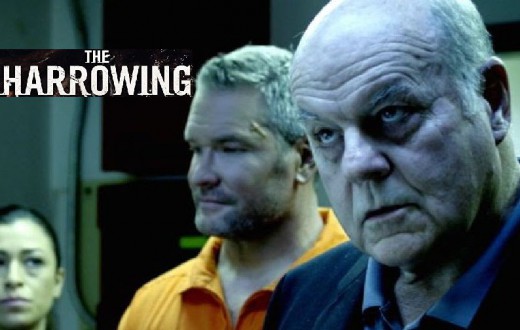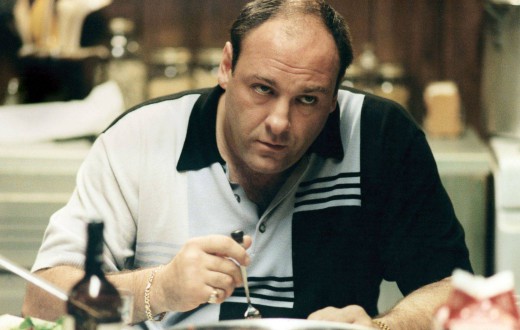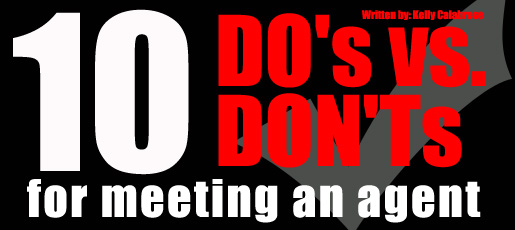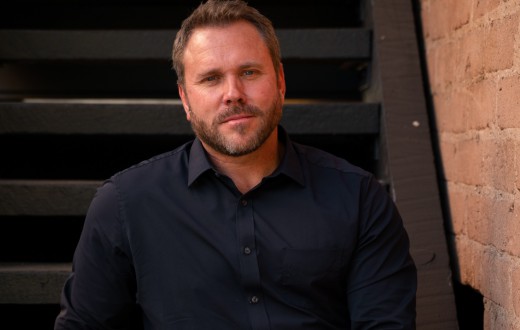When I teach my acting classes, I generally get two types of people thinking about signing up: young kids and teens, and older folks.
And it’s interesting: knowing what we as adults know about how tough it is to be a teen, how navigating simple things like attending class or just chatting with people can be a harrowing exercise in insecurity and embarrassment, you’d think that the teens would be the most reluctant to get into acting – which is after all, deliberately putting yourself out there in front of other people on a metaphorical balance beam, ever-poised to fall off very publicly.
But what I’ve often found is that it’s the older folks who are most unsure about getting into acting, who second-guess themselves and sort of mentally short-circuit themselves with doubt before they even get started. They tell themselves, “Oh, I’m far too late to START acting. Most people have been doing it since they were in high school. I’ll make a fool of myself.”
Well, guess what: there is not only plenty of room out there for people over 40 to get started in acting – being that age and up can be huge advantage for an actor just starting out!
Think about it: the pool of actors in their 20s is massive. That’s the age when we are at our most adventurous, most unburdened by obligations, and most free to try new things and move to new places.
It’s also, generally speaking, an age when we’re most malleable and don’t know ourselves very well.
So that’s one advantage for older folks: coming into acting as an established adult with solid ideas of how you fit in the world – not to mention 20 or so extra years of experience and education under your belt – you are already well-positioned to take on the challenges of acting.
Another point about that broad but shallow pool of 20-something actors: you’ll find that as the age of the actor increases, the pool narrows considerably. There simply aren’t as many older actors out there ready to go to work as there are young’uns.
And now think about this: how many times have you seen a cop show with the grizzled captain played by a 20-year-old? Or a suburban mom played by a girl fresh out of high school? Maybe in a high school theater production, but not on any reputable show or film, that’s for sure.
Yet television, film and professional stage productions are constantly in need of actors who can reasonably fill these types of roles – and many, many more. In a narrower pool you can really stand out as “an actor of a certain age.”
And given the right tools you can book roles for yourself that will make your 20-something acting peers jealous of how much work you get! Here’s a few ways to get you started off on the right foot.
1. The (Older) Actor Prepares
The great thing about getting started as an older actor is that you need to do basically the same things as any other age actor who is just starting out. First and foremost, you need to get yourself the tools necessary to do the job. Just like you wouldn’t want a plumber to show up to your house with a hammer and a scalpel to fix your toilet, you can’t get rolling as an actor unless you have the right equipment you need to do the job. Start out by getting yourself some books on acting and learn the basic terminology and some well-respected approaches to the work. A couple recommendations: “A Practical Handbook for the Actor” is a slim volume packed with just what the title says: very practical, simple methods to help you analyze a scene and develop the vocabulary and thought processes necessary to creating an action (first lesson: acting is action!) for your character in a given scene. Another must-have for any actor who is seeking work on camera, whether it be in film, television or commercials is Tony Barr’s “Acting for the Camera.” It’s an older book but the revised edition still contains tremendous insight into Barr’s 40-plus years as an acting teacher, performer and director in Hollywood. There is also plenty of advice right here on NYCastings too, from how to get started in acting, to understanding the casting process, to developing the qualities you need for successful auditions.
2. Get Some Education
Once you’ve got yourself a bit of a handle on the nuts and bolts of acting, it’s time to get your feet wet. Get yourself in a class with a reputable instructor. Most good teachers will allow you to audit an acting class before committing to it, and this is a really good idea. Even if a teacher is reputable, experienced, and good at what he or she does, sometimes you just might not click. That’s okay! If for any reason you feel uncomfortable about a class you audit, say thank you and move on to the next one. No big. You should look for teachers not only with a reputation and a resume, but also those who make acting fun and create a space that is warm, encouraging, and nurturing. This stuff is a challenge! We don’t need negativity from a teacher on top of all the other challenges that come with acting. Keep in mind too that most actors will tell you that taking classes isn’t something you do for a little while as a novice and then leave behind. The process of acting and discovering withing ourselves our capacity for it is ongoing and should be considered a life-long project. In addition to basic acting classes there is scene study, improv classes, on-camera classes, audition classes, dance, singing – it never ends and it is wonderful!
3. Get Yourself Some Experience!
There’s nothing like learning by doing. And as mentioned above, there are tons of opportunities out there for the older actor. At this stage of the game, any acting is better than no acting for getting you going – look into community theater productions, small roles in paid theater productions, student films, indie film projects, and of course commercials, depending on where you live. No matter how small the role might be, I promise you will find yourself learning, absorbing, and developing yourself as an actor if you are open to it! The other great thing about the older actor is you have so much to offer in the way of life experience and perspective. In exchange for picking the brains of younger actors on their acting education, you have a lot to give them as well!
4. Get Yourself Some Headshots
Don’t forget the calling card of the trade, the good old headshot. You are going to want to get yourself a good photographer who specializes in headshots – not your cousin Shirley who just bought a used Nikon. Sorry, Shirley. It will make a huge difference when you go to present yourself at auditions. Imagine the difference between homemade ink-jet printed business cards versus slick, raised lettering, professional cards. The headshot is your foot in the door; make sure that foot isn’t inside a stinky sneaker. Here are a few articles that can help you avoid some common headshot mistakes, make sure you get age-appropriate headshots, and get in the right mental space for taking headshots. Keep in mind too that oftentimes these days casting directors will ask for self-tape auditions. Here’s a self-tape primer to help you get started in knowing what’s expected.
As with all things in life, the big killer is not taking that first step. Don’t let fear or nervousness prevent you from jumping into acting later in life! You will find it’s one of the most fun, rewarding and amazingly joyful experiences you will ever have!







